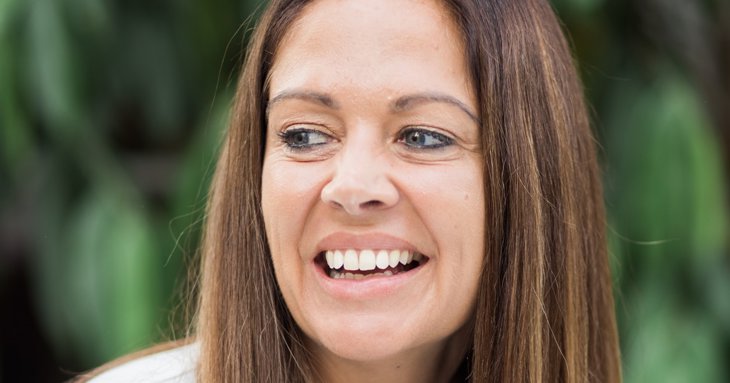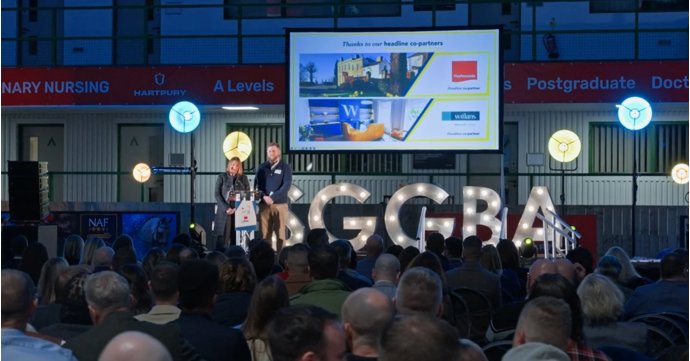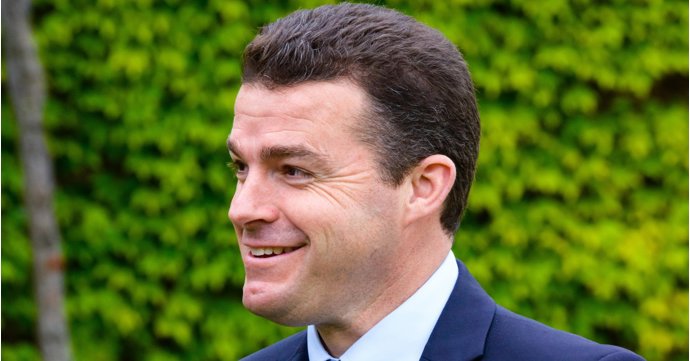Having worked in HR for nearly two decades, Kelly Tucker does HR differently, focusing on things like employee engagement and people strategy, rather than just hiring and firing.
The founder and managing director of Cheltenham-based HR Star shares her expertise with SoGlos in the first of our Gloucestershire employee expert series.
About the expert - Kelly Tucker, managing director of HR Star

Founder and managing director of HR Star in Cheltenham, Kelly Tucker has worked in the HR industry for close to 20 years and is passionate about changing perceptions of HR by showing businesses how engaged employees lead to success.
HR Star offers its clients a unique people strategy session where it really gets to know the business and its people, to craft a strategy that will help the business achieve its goals, while making its employees feel valued, too.
To find out more about Kelly, watch her SoGlos 10 questions challenge.
Tell us a bit about yourself and your career to date.
I am the founder and managing director of HR Star, which is just over seven and a half years old. I started the business in Cheltenham, but now provide HR support to businesses throughout the UK as well as having a client in Utah in the USA.
I started my career at WWT Slimbridge as a temp when I was 22. It had a new HR manager and she had been given the task to set up an HR department for the 200 staff across the sites in the UK. When we started back in the day, HR was called personnel and we had big filing cabinets full of paper personnel files - so one of the first jobs was looking through all of those; making sure everyone had a file and a contract; creating contracts for those who didn't; then we wrote and implemented a new employee handbook.
One of the jobs that I was also responsible for was recruitment – placing adverts in newspapers, putting paper-based applications together, collating those for trustees as they came back in; so really manual, hands-on stuff.
I worked at the trust for eight years, working my way up to HR manager by the time I left. I left after I had my first child to do something different, and so I went and set up an HR department for a privately-owned business that did medical market research. I was initially on a six-month contract but ended up staying there for eight years.
Why did you decide to start HR Star?
It was while I was at the medical market research business that I decided to set up HR Star, and that was mainly because I wanted to do HR differently. I got fed up with HR being something used only when you needed to hire and fire, or something that people dreaded having interactions with.
HR can be something different and when I studied my CIPD, I wrote my management research report on the psychological contract between employer and employee and developed a strong interest in employee engagement. It made sense being proactive with your HR rather than reactive.
So, it was while I was working as a senior HR business partner for that business that I started looking into doing my own thing - and they actually approached me and said they would be my first client, so that's how it all started.
I was really lucky that I had clients from day one, and it's just snowballed from there.
What makes HR Star different from other firms?
I think it's that proactive approach and the fact that we know that we work best with entrepreneurial-led, fast growing and creative types of business, because they really see the value and importance of investing time and resources into their people. So that's our niche and where we have most of our success.
We don't just sit and wait for our clients to call us, we're really involved, and we become an extension of their team. We start by doing a people strategy session, where we really get to know the business, find out what they need, get to know their people and what their people need from them. We look at all stages of the employee life cycle and where we need to enhance it, then we give them a people strategy which aligns with their business plan and ensures that they can reach their business goals through their people.
We work with them on an ongoing, proactive basis to deliver that.
How did the pandemic affect your business?
When the pandemic hit it was tricky, but we spent a lot of time in the beginning helping businesses who were downsizing, furloughing, restructuring, and having to make redundancies.
Then we spent a lot of time looking at HR Star and what we wanted to be doing when we came out of that period. I'm really pleased to say that we've just grown and grown, and we now work with entrepreneurial-led businesses providing proactive people support, really focusing on employee engagement.
You've got a reputation for being outspoken when it comes to doing HR right - why is that?
I think it's just because I'm really passionate and I believe that HR should be done differently. It shouldn't be something that's feared or something that is just there to hire or fire. HR should have a seat at the table – it is a critical part of the business.
Also, your people are your biggest assets, so why wouldn't you invest in them? I feel really passionate about that. So, when anyone challenges that or when I see people saying that they look after their people when they clearly don't, or that they think the stuff that we do is fluffy, I get quite passionate about it and I'm very happy to voice my views on that. So yes, I suppose you could say I'm outspoken when it comes to that!

Would you say that most businesses aren't doing HR right currently?
Currently I think some businesses just see it as a service provider or a transactional part of the business. I think you need to look at it differently. It should be something that touches every element of the business; it should be strategic; it should be being spoken about at board level.
When we're talking about what it is we want our business to achieve, 99 per cent of the time we're going to want our people to ensure that it happens, so how can we make sure that our people feel valued or part of the bigger picture? Do they know what our company values are? Do they know what that vision is, so that they're coming along on that journey with us?
I think what I see in some businesses is that HR is just a service provider there to send contracts out or make sure we have an appraisal and so on, so they're not fully immersed within the business and how the business runs.
How do you help them change that?
HR Star works to create a people strategy with business owners, looking at all areas of the employee life cycle. We look at company values – we know that cultures are based on values and behaviours so we thread the values through all the people processes.
We use it when we're recruiting, bringing in new people, we do it when we onboard and induct people. We use it when we're measuring and rewarding performance. We also use it when people leave the business, with social media and Glassdoor, people talk about their experiences at work - so we make sure that even when they do leave, they do it in a positive way.
Your employees are your biggest ambassadors, so I really show the value of that to potential clients and talk a lot about that with people.
We take a different approach from day one with the people strategy session, which really does help businesses to change how they view HR and how it should be done.
You've worked in the HR industry for nearly 20 years - what are the biggest lessons you've learned from your experiences so far?
I think that being proactive with HR is the key. Employee engagement isn't fluffy, it's essential to business success and if you really do invest the time and resources into creating a highly engaged team, then you will see success - there is a clear link between that.
Something else I've learned is that honesty is the best policy. Where you know you've got to deliver bad news, be honest with that and keep communication clear. Like I say to all my clients and my team, you can't have a successful business without being really open and communicating all the time.
It's also really important to practice what you preach. So, everything that I talk to my clients about, if I'm talking about something on social media, it's something I do with my team and my team are highly engaged - and due to that, the business is going from strength to strength.
What advice would you give to business owners who aren't taking HR as seriously as perhaps they should?
They really should, because if you've got disgruntled employees, or if you get it wrong, it costs not only a lot of money, but so much time. You can't underestimate the time and impact not taking HR seriously can have – from disgruntled employees going out and creating a bad view of your business to potential employment tribunals.
We know that when people are disengaged, they take more time off sick, they're less likely to be performing well, they're more likely to leave - and recruitment is really costly. I think focusing on attracting and retaining the best people in your business is the number one thing business owners should be doing to ensure that, even as we go into a recession, that they will achieve success.


















